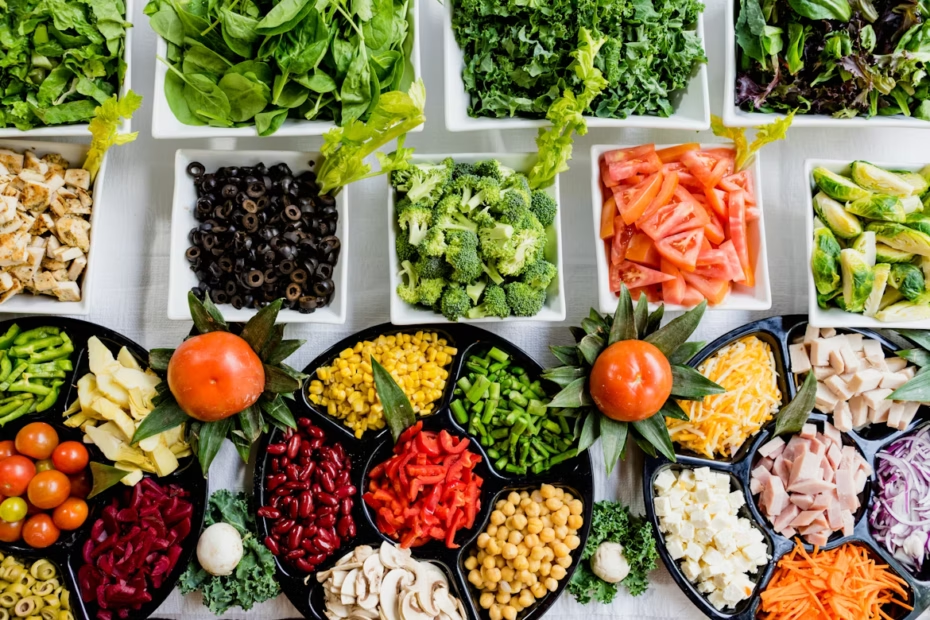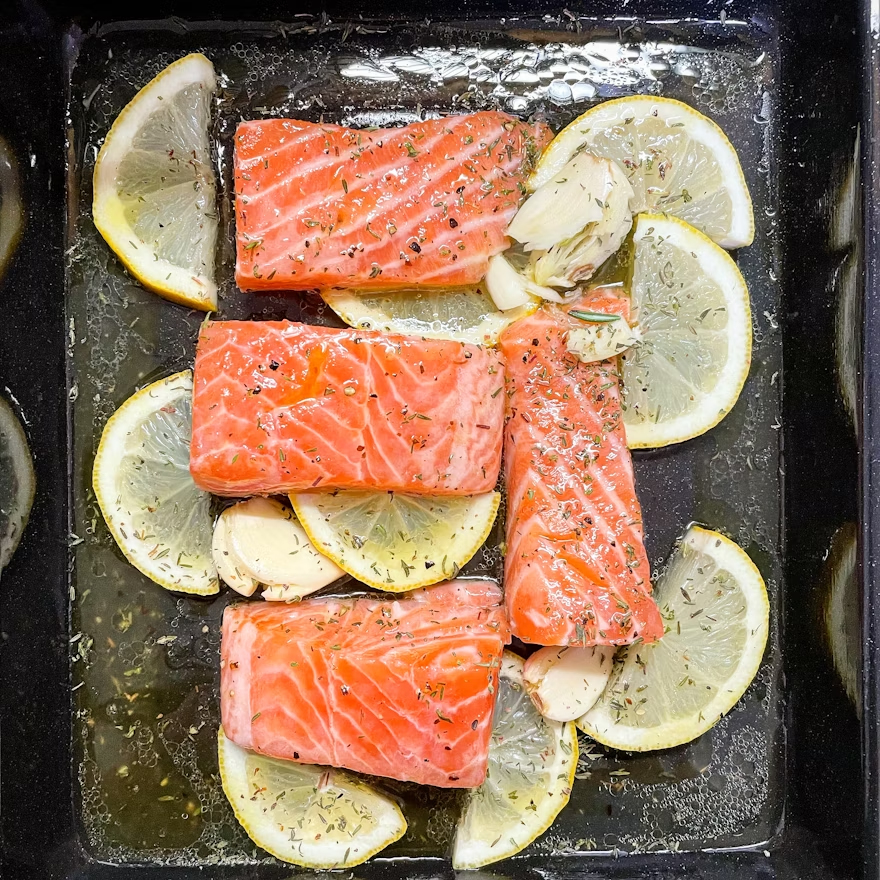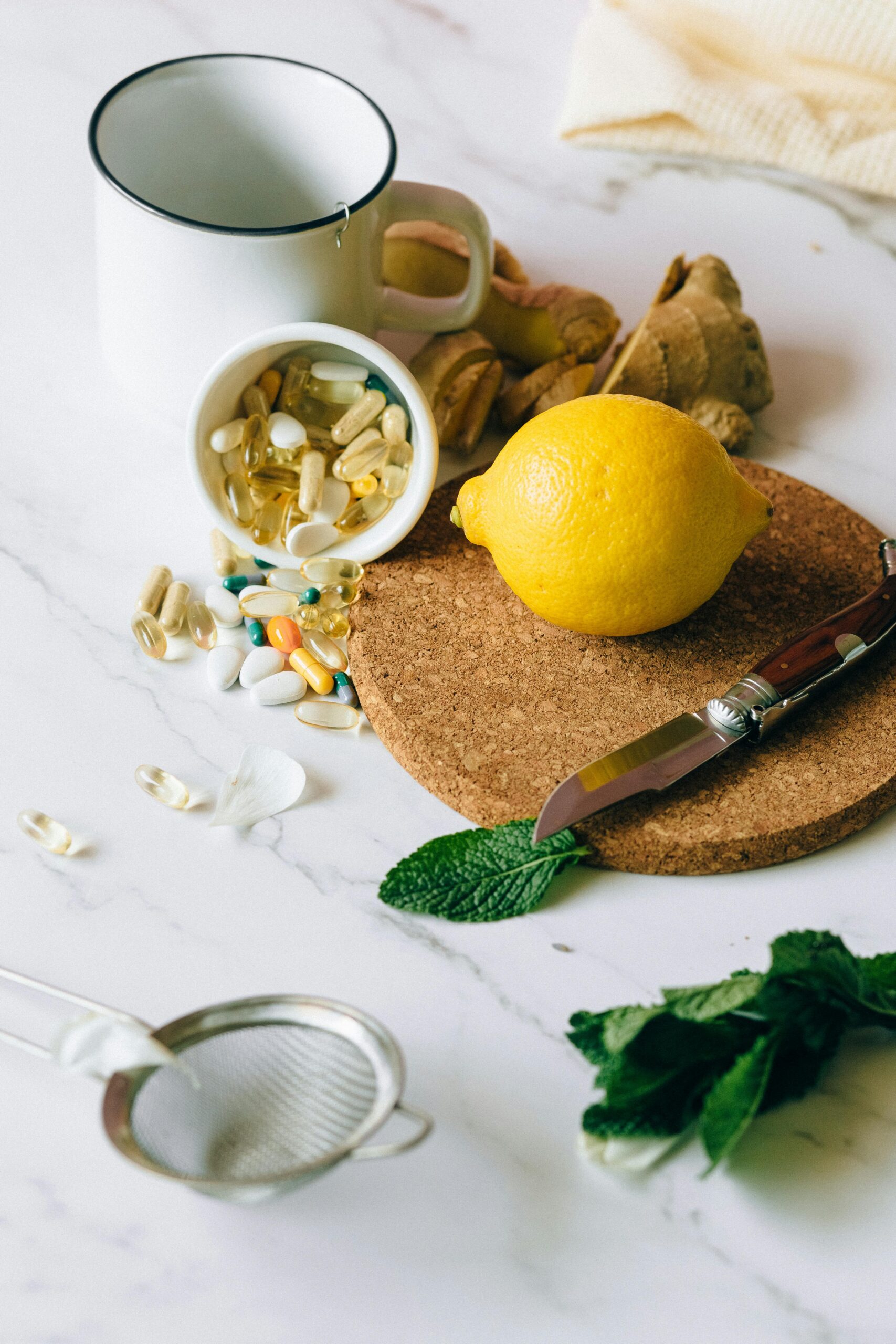How to Get Rid of Inflammation in the Body: 7 Science-Backed Methods
Your joints ache. You feel tired all the time. You can’t seem to shake that brain fog. Sound familiar? These could all be signs of inflammation in your body.
Inflammation isn’t always bad—it’s your body’s natural response to injury or infection. But when it sticks around too long, chronic inflammation can lead to serious health problems like heart disease, diabetes, and arthritis.
The good news? You can fight back. Let’s look at proven ways to reduce inflammation and feel better.
What Is Inflammation and Why Does It Matter?
Think of inflammation as your body’s fire alarm. When you get a cut or catch a cold, inflammation shows up to help. You see this as redness, swelling, and warmth. That’s acute inflammation—it’s helpful and goes away quickly.
But chronic inflammation is different. It’s like that fire alarm keeps ringing even when there’s no fire. This constant low-level inflammation damages your cells over time.
Research from Harvard Medical School shows that chronic inflammation plays a role in cancer, heart disease, diabetes, arthritis, depression, and Alzheimer’s disease.
Signs You Might Have Chronic Inflammation
Your body gives you clues when inflammation is running high. Common signs include:
- Constant fatigue that doesn’t improve with rest
- Body aches and joint pain
- Digestive problems like bloating or constipation
- Skin issues like rashes or acne
- Frequent infections or slow healing
- Brain fog and trouble concentrating
- Unexplained weight gain
If these symptoms sound familiar, it’s worth talking to your doctor. A simple blood test can measure inflammation markers like C-reactive protein (CRP).
1. Change What You Eat: The Anti-Inflammatory Diet
Your diet has a huge impact on inflammation. Some foods fan the flames. Others put out the fire. It’s that simple.
Studies published in the National Institutes of Health database show that anti-inflammatory diets reduce the risk of heart disease, diabetes, cancer, and Alzheimer’s disease.
Foods That Fight Inflammation
These are your inflammation-fighting superfoods. They’re packed with antioxidants and nutrients that calm your immune system:
| Food Category | Best Choices | Why They Help |
|---|---|---|
| Colorful Vegetables | Broccoli, kale, spinach, bell peppers, Brussels sprouts | High in antioxidants and vitamins that fight free radicals |
| Berries & Fruits | Blueberries, strawberries, cherries, pomegranates | Contains polyphenols that reduce inflammation markers |
| Fatty Fish | Salmon, sardines, mackerel, anchovies | Rich in omega-3 fatty acids that lower CRP and IL-6 |
| Nuts & Seeds | Walnuts, almonds, flaxseeds, chia seeds | Provides healthy fats and fiber that support gut health |
| Olive Oil | Extra virgin olive oil | Contains oleocanthal, a natural anti-inflammatory compound |
| Whole Grains | Brown rice, quinoa, oats, whole wheat | High fiber reduces inflammatory markers |
| Spices | Turmeric, ginger, garlic, cinnamon | Powerful anti-inflammatory compounds |
Johns Hopkins Medicine recommends eating at least 1.5-2 cups of fruit and 2-3 cups of vegetables daily. The more colorful your plate, the better.
Foods That Increase Inflammation
On the flip side, these foods trigger inflammation and make things worse:
- Sugary foods and drinks: Soda, candy, baked goods, sweetened coffee drinks
- Refined carbs: White bread, white rice, pastries, crackers
- Processed meats: Hot dogs, bacon, sausage, deli meats
- Red meat: Beef, pork, lamb (especially in large amounts)
- Fried foods: French fries, fried chicken, donuts
- Trans fats: Margarine, shortening, processed snacks
- Excess alcohol: More than moderate drinking increases inflammation
You don’t have to eliminate these completely. But limiting them makes a real difference. Start by swapping one inflammatory food for an anti-inflammatory option each week.
The Mediterranean Diet: Your Best Bet
Research shows that the Mediterranean diet is one of the most effective eating patterns for reducing inflammation. It’s based on how people in Greece, Italy, and Spain traditionally ate.
The basics are simple: lots of vegetables, fruits, whole grains, fish, olive oil, and moderate amounts of wine. Limited red meat and processed foods.
People who follow this diet have lower levels of inflammatory markers in their blood. Plus, it tastes great and doesn’t feel like a diet.
2. Move Your Body: Exercise as Medicine

Here’s something amazing: just 20 minutes of moderate exercise can reduce inflammation. Yes, really.
A study from UC San Diego found that a single 20-minute session of moderate exercise decreased inflammatory markers by 5%. The researchers tested people walking on a treadmill at a comfortable pace.
How Exercise Fights Inflammation
When you exercise, several things happen in your body that calm inflammation:
- It reduces belly fat: Visceral fat releases inflammatory chemicals. Exercise shrinks fat cells and lowers inflammation.
- It triggers anti-inflammatory proteins: Your muscles release special proteins called myokines that fight inflammation throughout your body.
- It boosts your immune system: Regular exercise increases special immune cells that regulate inflammation.
- It improves insulin sensitivity: This reduces inflammation linked to blood sugar problems.
You don’t need to become a marathon runner. Even gentle movement helps. The key is consistency.
Best Types of Exercise for Reducing Inflammation
Effective Anti-Inflammatory Exercises:
- Walking: 20-30 minutes daily at a moderate pace
- Swimming: Easy on joints, works whole body
- Cycling: Builds strength without high impact
- Yoga: Reduces stress hormones that drive inflammation
- Strength training: 2-3 times per week builds muscle that fights inflammation
- Tai chi: Gentle movements that calm both body and mind
Start where you are. If you’ve been inactive, even 10 minutes a day makes a difference. Then gradually increase. Your body will thank you.
3. Sleep Better: Your Body’s Repair Time

When you don’t sleep enough, your body pumps out inflammatory chemicals. Research from the National Institutes of Health shows that even one night of poor sleep increases inflammation markers.
During deep sleep, your body clears out inflammatory proteins and repairs damage. Miss that sleep? The inflammation just builds up.
How Sleep Deprivation Triggers Inflammation
Studies show that lack of sleep:
- Increases IL-6 and TNF-alpha (inflammatory proteins)
- Activates your stress response system
- Disrupts your gut bacteria (which affects inflammation)
- Raises blood sugar and cortisol levels
The scary part? Chronic sleep problems increase your risk of heart disease, diabetes, depression, and other inflammatory conditions.
How to Sleep Better Tonight
Good sleep doesn’t happen by accident. Try these strategies:
- Stick to a schedule: Go to bed and wake up at the same time every day, even weekends
- Create a wind-down routine: 30-60 minutes before bed, do something relaxing
- Keep it cool and dark: Your bedroom should be 65-68°F and as dark as possible
- Limit screen time: Turn off phones and TVs at least an hour before bed
- Watch caffeine timing: No caffeine after 2 PM
- Exercise regularly: But not within 3 hours of bedtime
- Manage stress: Try meditation, deep breathing, or journaling before bed
Most adults need 7-9 hours of sleep per night. If you’re constantly tired or need an alarm to wake up, you’re probably not getting enough.
4. Manage Stress: Break the Inflammation Cycle

Chronic stress is like pouring gasoline on the inflammation fire. When you’re stressed, your body releases cortisol and other hormones that trigger inflammation.
This made sense for our ancestors—inflammation helped heal injuries during dangerous situations. But today’s chronic stress (work deadlines, financial worries, relationship problems) keeps inflammation switched on.
Simple Stress-Busting Techniques
You can’t eliminate all stress. But you can change how your body responds to it:
- Deep breathing: 5 minutes of slow, deep breaths calms your nervous system
- Meditation: Even 10 minutes daily reduces stress hormones
- Time in nature: Walking outdoors lowers cortisol levels
- Social connection: Talking with friends or family reduces stress
- Hobbies you enjoy: Activities that absorb your attention give your stress response a break
- Regular exercise: Physical activity burns off stress hormones
Pick one technique and practice it daily. Building this habit is as important for inflammation as eating well or exercising.
5. Maintain a Healthy Weight

Excess body fat—especially around your belly—acts like an inflammatory organ. Fat cells release inflammatory chemicals into your bloodstream.
The good news? You don’t need to reach your “ideal” weight to see benefits. Losing just 5-10% of your body weight can significantly reduce inflammation markers.
For a 200-pound person, that’s only 10-20 pounds. And the changes you’re already making—eating anti-inflammatory foods, exercising, sleeping better—naturally lead to healthy weight loss.
6. Limit Alcohol and Quit Smoking

Both smoking and excessive drinking increase inflammation throughout your body.
Smoking damages nearly every organ and triggers chronic inflammation. If you smoke, quitting is the single best thing you can do for inflammation.
Alcohol is trickier. Small amounts (one drink per day for women, two for men) might not cause problems. But heavy drinking definitely increases inflammation markers.
If you’re struggling with either habit, talk to your doctor about resources that can help.
7. Consider Anti-Inflammatory Supplements
Supplements can’t replace a healthy lifestyle. But they might help fill nutritional gaps. Always talk to your doctor before starting supplements, especially if you take medications.
Some supplements with inflammation-fighting properties:
- Omega-3 fish oil: 1-2 grams daily reduces inflammatory markers
- Turmeric (curcumin): 500-1000 mg daily with black pepper for absorption
- Vitamin D: Many people are deficient, and low levels increase inflammation
- Probiotics: Support gut health, which influences inflammation
- Green tea extract: Rich in anti-inflammatory compounds
Remember: whole foods should be your first choice. Supplements are just that—supplemental.
Putting It All Together: Your Anti-Inflammation Action Plan
You don’t have to do everything at once. Small changes add up. Here’s how to start:
This Week
- Add one anti-inflammatory food to each meal
- Take a 20-minute walk daily
- Set a consistent bedtime
This Month
- Replace one inflammatory food with a healthier option
- Build up to 30 minutes of daily movement
- Practice stress management for 10 minutes each day
- Improve sleep habits (darker room, cooler temperature, no screens before bed)
This Year
- Adopt a Mediterranean-style eating pattern
- Exercise most days of the week
- Maintain consistent sleep schedule
- Build stress management into your daily routine
- Reach a healthier weight if needed
These changes aren’t just about reducing inflammation. They’re about building lifestyle foundations that support your entire health and well-being.
When to See a Doctor
While lifestyle changes work for most people, sometimes you need medical help. See your doctor if you have:
- Severe or persistent pain
- Unexplained weight loss
- Fever that won’t go away
- Symptoms that interfere with daily life
- A diagnosed inflammatory condition that isn’t improving
Your doctor can run blood tests to measure inflammation and check for underlying conditions that need treatment.
The Bottom Line
Learning how to get rid of inflammation in the body isn’t about one magic food or supplement. It’s about consistent healthy habits that calm your immune system.
Start with the changes that feel easiest. Maybe that’s adding more vegetables to your meals. Or taking a daily walk. Or going to bed 30 minutes earlier.
Each small step reduces inflammation a little bit. Over time, those small steps add up to big improvements in how you feel—less pain, more energy, better focus, and lower risk of chronic disease.
Your body wants to heal. Give it the tools it needs, and it will.
References
- Harvard Medical School. Foods That Fight Inflammation. Harvard Health Publishing. 2024.
- National Institutes of Health. Anti-Inflammatory Diets. StatPearls. 2023.
- Johns Hopkins Medicine. Anti-Inflammatory Diet. 2025.
- Zampelas A, Magriplis E. Mediterranean Diet as a Tool to Combat Inflammation and Chronic Diseases. Biomolecules. 2019.
- Dimitrov S, Hulteng E, Hong S. Inflammation and exercise: Inhibition of monocytic intracellular TNF production by acute exercise. Brain Behavior and Immunity. 2017.
- Petersen AMW, Pedersen BK. Effect of Exercise Training on Chronic Inflammation. Clinical Immunology. 2013.
- Irwin MR, Olmstead R, Carroll JE. Sleep Loss and Inflammation. Best Practice & Research Clinical Rheumatology. 2016.
- Irwin MR, Opp MR. Sleep Health: Reciprocal Regulation of Sleep and Innate Immunity. Neuropsychopharmacology. 2017.
- NHLBI, NIH. Anti-inflammatory diets may reduce the risk of cardiovascular disease. 2020.
- Stroescu MN, Alexe OI, Bivol BN, et al. Chronic Inflammation in the Context of Everyday Life: Dietary Changes as Mitigating Factors. International Journal of Environmental Research and Public Health. 2020.
Related Articles
- Lifestyle Foundations for Optimal Wellness: Proven Habits That Transform Health and Longevity
- Recommended Dose of Turmeric for Inflammation: How It Compares to Ibuprofen
- Grounding and Earthing Benefits: Does Walking Barefoot Reduce Inflammation?
- High Cortisol Levels: Causes, Symptoms & Natural Treatment Guide
About the Author
The Remedy Verified Team translates complex metabolic science into clear, practical strategies for everyday health.
Medical Disclaimer
This article is for informational purposes only and does not constitute medical advice. The information contained herein is not a substitute for professional medical advice, diagnosis, or treatment. Always seek the advice of your physician or other qualified health provider with any questions you may have regarding a medical condition. Never disregard professional medical advice or delay in seeking it because of something you have read in this article. If you have a medical emergency, call your doctor or 911 immediately. The Remedy Verified Team does not recommend or endorse any specific tests, physicians, products, procedures, opinions, or other information that may be mentioned in this article. Reliance on any information provided by this article is solely at your own risk.



